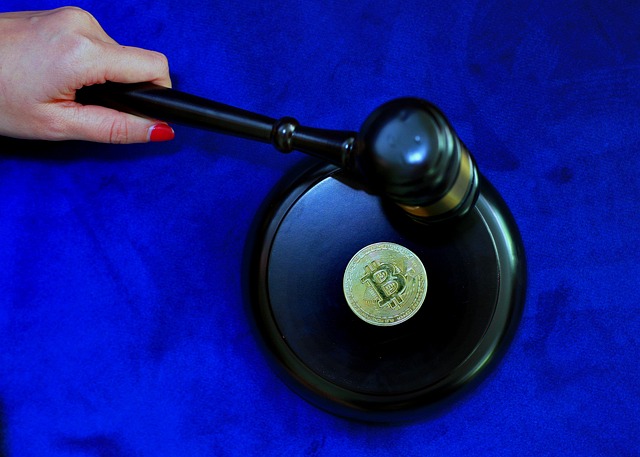Former New York governor advised OKX over $505M federal probe: Report
Cryptocurrency exchange OKX reportedly hired former New York Governor Andrew Cuomo to advise it over the federal probe that resulted in the firm pleading guilty to several violations and agreeing to pay $505 million in fines and penalties.Cuomo, a New York-registered attorney, advised OKX on legal issues stemming from the probe sometime after August 2021 when he resigned as New York overnor, Bloomberg reported on April 2, citing people familiar with the matter.“He spoke with company executives regularly and counseled them on how to respond to the criminal investigation,” Bloomberg said.The Seychelles-based firm pled guilty to operating an unlicensed money-transmitting business in violation of US Anti-Money Laundering laws on Feb. 24 and agreed to pay $84 million worth of penalties while forfeiting $421 million worth of fees earned from mostly institutional clients.The breaches occurred from 2018 to 2024 despite OKX having an official policy preventing US persons from transacting on its crypto exchange since 2017, the Department of Justice noted at the time.A spokesperson for Cuomo, Rich Azzopardi, told Bloomberg that Cuomo has been providing private legal services representing individuals and corporations on a variety of matters since resigning as New York governor.“He has not represented clients before a New York city or state agency and routinely recommends former colleagues for positions,” Azzopardi added.OKX reportedly wasn’t willing to comment on its relationships with outside firms.Cuomo also influenced OKX to make executive appointments: BloombergCuomo, who is now running for mayor of New York City, also advised OKX to appoint his friend US Attorney Linda Lacewell to OKX’s board of directors, Bloomberg said.Lacewell, a former superintendent of the New York Department of Financial Services, was added to the board in 2024 and was named OKX’s new chief legal officer on April 1, according to a recent company statement.Source: Linda LacewellRelated: New York bill aims to protect crypto investors from memecoin rug pullsAfter the investigation concluded, OKX said it would seek out a compliance consultant to remedy the issues stemming from the federal probe and bolster its regulatory compliance program.“Our vision is to make OKX the gold standard of global compliance at scale across different markets and their respective regulatory bodies,” OKX CEO Star Xu said in a Feb. 24 X post.Magazine: Financial nihilism in crypto is over — It’s time to dream big again
Pi Network price nears all-time lows as supply pressure mounts
Pi Network, a social cryptocurrency project, has been making headlines recently as its price approaches all-time lows. According to CoinMarketCap, the current trading price for Pi Network (PI) is $0.6722, just slightly above its all-time low of $0.6152 reported in February. This downward trend can be attributed to the unlocking of over 126.6 million PI tokens this month, which accounts for almost 1.87% of the coin’s circulating supply.
Founder of Obchakevich Research, Alex Obchakevich, believes that this price downturn was inevitable due to the high number of monthly unlocks exceeding the demand for the token. However, he also recognizes the potential of Pi Network and suggests that the project should focus on development to increase usage and interest. He even goes as far as saying that the project has the potential to compete with the top 10 projects in the future.
For those unfamiliar with Pi Network, it is a mobile-first blockchain project that allows users to earn its native token, Pi coin, through a daily check-in process on the app. The project, developed by a team of Stanford University graduates, first launched in 2019 and has since gained a lot of attention for its unique referral-based structure. Users can invite others to join the network and earn tokens in return.
However, not everyone is convinced of Pi Network’s legitimacy. In February, Ben Zhou, the CEO of crypto exchange ByBit, accused the project of being a scam and stated that his exchange would not list it. Despite these accusations, Pi Network continues to grow and attract users.
As more and more tokens are unlocked, the project faces the challenge of staying afloat in a highly competitive market. But with a strong focus on development and potential for growth, Pi Network could potentially become a major player in the cryptocurrency world. So, keep an eye on this project as it continues to evolve and make its mark in the industry.
North Korea tech workers found among staff at UK blockchain projects
Fraudulent tech workers with ties to North Korea are expanding their infiltration operations to blockchain firms outside the US after increased scrutiny from authorities, with some having worked their way into UK crypto projects, Google says.Google Threat Intelligence Group (GTIG) adviser Jamie Collier said in an April 2 report that while the US is still a key target, increased awareness and right-to-work verification challenges have forced North Korean IT workers to find roles at non-US companies.“In response to heightened awareness of the threat within the United States, they’ve established a global ecosystem of fraudulent personas to enhance operational agility,” Collier said. “Coupled with the discovery of facilitators in the UK, this suggests the rapid formation of a global infrastructure and support network that empowers their continued operations,” he added. Google’s Threat Intelligence Group says North Korea’s tech workers expanded their reach amid a US crackdown. Source: GoogleThe North Korea-linked workers are infiltrating projects spanning traditional web development and advanced blockchain applications, such as projects involving Solana and Anchor smart contract development, according to Collier. Another project building a blockchain job marketplace and an artificial intelligence web application leveraging blockchain technologies was also found to have North Korean workers. “These individuals pose as legitimate remote workers to infiltrate companies and generate revenue for the regime,” Collier said. “This places organizations that hire DPRK [Democratic People’s Republic of Korea] IT workers at risk of espionage, data theft, and disruption.”North Korea looking to Europe for tech jobsAlong with the UK, Collier says the GTIG identified a notable focus on Europe, with one worker using at least 12 personas across Europe and others using resumes listing degrees from Belgrade University in Serbia and residences in Slovakia. Separate GTIG investigations found personas seeking employment in Germany and Portugal, login credentials for user accounts of European job websites, instructions for navigating European job sites, and a broker specializing in false passports.At the same time, since late October, the North Korean workers have increased the volume of extortion attempts and gone after larger organizations, which the GTIG speculates is the workers feeling pressure to maintain revenue streams amid a crackdown in the US. “In these incidents, recently fired IT workers threatened to release their former employers’ sensitive data or to provide it to a competitor. This data included proprietary data and source code for internal projects,” Collier said. Related: North Korean crypto attacks rising in sophistication, actors — ParadigmIn January, the US Justice Department indicted two North Korean nationals for their involvement in a fraudulent IT work scheme involving at least 64 US companies from April 2018 to August 2024.The US Treasury Department’s Office of Foreign Assets Control also sanctioned companies it accused of being fronts for North Korea that generated revenue via remote IT work schemes.Crypto founders have also been reporting an increase in activity from North Korean hackers, with at least three founders reporting on March 13 that they foiled attempts to steal sensitive data through fake Zoom calls.Having audio issues on your Zoom call? That’s not a VC, it’s North Korean hackers. Fortunately, this founder realized what was going on.The call starts with a few “VCs” on the call. They send messages in the chat saying they can’t hear your audio, or suggesting there’s an… pic.twitter.com/ZnW8Mtof4F— Nick Bax.eth (@bax1337) March 11, 2025In August, blockchain investigator ZachXBT claimed to have uncovered a sophisticated network of North Korean developers earning $500,000 a month working for “established” crypto projects.Magazine: Lazarus Group’s favorite exploit revealed — Crypto hacks analysis
Crypto miner backs US senator's efforts to incentivize using flared gas
Texas Senator Ted Cruz has recently proposed a bill that aims to incentivize crypto miners to use flared gas for energy generation in the state. This move could potentially make Texas the top destination for Bitcoin mining. The bill, called the Facilitate Lower Atmospheric Released Emissions (FLARE) Act, was introduced by Cruz on April 1st and has already gained support from mining advocacy group Digital Power Network and Bitcoin miner MARA Holdings.
The FLARE Act aims to amend the US Internal Revenue Code to encourage market participants, including digital asset miners, to capture and use gas that would otherwise be flared or vented. This would not only reduce emissions but also unlock stranded energy. If passed, the legislation would take effect in 2026.
In addition to the energy incentives, the bill also prohibits entities owned by China, Iran, North Korea, or Russia from recovering their costs in the same manner. This could potentially impact many US miners operating in Texas, including MARA, Riot Platforms, and CleanSpark.
While the bill has gained support from some in the crypto community, it is unclear if it will be a legislative priority in the Senate as Congress is currently considering bills to regulate stablecoins and establish a market structure for digital assets in the US. Some lawmakers have also proposed legislation to potentially ban a US central bank digital currency and remove regulatory obstacles for Americans to invest in crypto for their retirement plans.
Senator Cruz, who has been serving since 2013, has previously aligned with mainstream figures in his party, including US President Donald Trump. He recently introduced a bill to prohibit the Federal Reserve from issuing a central bank digital currency and disclosed personally holding up to $100,000 in Bitcoin by August 2024.
As the crypto industry continues to gain mainstream attention and support, it is likely that more bills and legislation related to digital assets will be introduced in the US Congress. It will be interesting to see how these developments will shape the future of crypto in the country.
Ethereum's weekly blob fees hit 2025 lows
The Ethereum network’s main source of income from layer-2 (L2) scaling chains — “blob fees” — has sunk to the lowest weekly levels so far this year, according to data from Etherscan. In the week ending March 30, Ethereum earned only 3.18 Ether (ETH) from blob fees, according to Etherscan, or approximately $6,000 US dollars as of April 1. This figure marks a 73% drop from the prior week and a more than 95% decline from the week ending March 16, when Ethereum’s income from blob fees exceeded 84 ETH, Etherscan said in an X post. Source: EtherscanRelated: Ethereum fees poised for rebound amid L2, blob uptickPost-Dencun growing painsIn March 2024, Ethereum’s Dencun upgrade migrated L2 transaction data to temporary offchain stores called “blobs.”The upgrade cut costs for users but also reduced overall fee revenue for Ethereum — initially by as much as 95%, according to data from asset manager VanEck.“ETH Fees Were Weak Due to Lack of Blob Revenues as L2s Have Not Filled Available Capacity,” Matthew Sigel, VanEck’s head of digital asset research, said in a Nov. 1, 2024, post on the X platform.Since then, growth in blob fees has been unsteady. Ethereum’s weekly blob fee income peaked at nearly $1 million in November before declining sharply in recent weeks, according to data from Dune Analytics. Ethereum’s blob fee income has been uneven. Source: Dune AnalyticsEthereum’s ongoing struggle to earn meaningful income from blob fees underscores concerns about the network’s scaling model, which relies heavily on L2s for transaction throughput.“Ethereum’s future will revolve around how effectively it serves as a data availability engine for L2s,” arndxt, author of the Threading on the Edge newsletter, said in a March 31 X post. According to an X post by Michael Nadeau, founder of The DeFi Report, L2 transaction volumes would need to increase more than 22,000-fold for blob fees to fully offset Ethereum’s peak transaction fee revenues. However, Ethereum’s economics are still evolving. For instance, the network’s Pectra Upgrade — which aims to significantly change how Ethereum allocates blob space — is scheduled for this year. “The plan is simple: scale Ethereum as much as possible to capture as much marketshare as we can – worry about fee revenue later,” Sassal, founder of The Daily Gwei, said in a March 17 X post. Magazine: AI agents trading crypto is a hot narrative, but beware of rookie mistakes
GoMining launches $100M Bitcoin mining fund for institutional investors
GoMining, a platform that allows users to mine Bitcoin (BTC) through data centers, is launching a $100 million Bitcoin mining fund for institutional investors. Custodied by Bitgo, the fund promises annual distributions from mining yield and a strategy that focuses on Bitcoin rewards and reinvestment.GoMining’s Alpha Blocks Fund comes as more companies have added Bitcoin to their balance sheets, capturing enthusiasm surrounding the resurgence of the world’s top cryptocurrency by market capitalization. Companies that have done so, including Japan’s Metaplanet and medical technology company Semler Scientific, have seen their stock prices increase.“Unlike passive equity investments, the Alpha Blocks Fund offers direct exposure to mined Bitcoin via a fully managed, compounding hashrate strategy,” a GoMining spokesperson told Cointelegraph.“BTC rewards are reinvested to increase the fund’s hashrate and improve miner efficiency — creating real, yield-driven outcomes. Our model is built for performance, not market sentiment, and integrates utility-based advantages that listed mining companies typically don’t offer.”According to a press release shared with Cointelegraph, GoMining Institutional operates with 7.3 Exahash of active hash power.Related: Is cryptocurrency mining still profitable in 2025?“This framework ensures compliance with relevant regulatory requirements and supports our focus on delivering institutional-grade exposure to Bitcoin mining yield strategies,” said the spokesperson, adding that retail users can access a separate digital mining product. The fund will charge a 2% flat annual management fee, with no performance fees applied. While GoMining’s Bitcoin fund caters to institutional investors, its flagship product is geared toward retail miners who may lack the funds to create a heavy-duty mining rig. In 2024, it revealed an attempt to gamify Bitcoin mining through the use of non-fungible tokens.Institutional investment in Bitcoin and other cryptocurrencies like Ether (ETH) has been on the rise since 2024, when the first cryptocurrency exchange-traded funds were launched in the United States. Regulatory clarity from Europe’s MiCA and the enthusiasm for digital assets in the United States might be changing institutional investors’ skepticism about cryptocurrencies. In March 2025, a report by Coinbase revealed that 83% of institutions are planning a crypto allocation.Magazine: AI may already use more power than Bitcoin — and it threatens Bitcoin mining
Bitcoin price flips volatile as traders eye $84.5K breakout
Bitcoin (BTC) repeated earlier volatility at the April 1 Wall Street open as US trade tariff talk kept markets nervous.BTC/USD 1-hour chart. Source: Cointelegraph/TradingViewBitcoin stays erratic ahead of crunch tariffsData from Cointelegraph Markets Pro and TradingView showed BTC/USD making rapid moves within its weekly trading range of around $83,000.US stocks ticked lower at the open, while gold came off fresh all-time highs of $3,149 per ounce.Talk of recession began to return to the spotlight ahead of US President Donald Trump’s so-called “Liberation Day,” due on April 2 and on which he promised to unveil a new round of trade tariffs.“Equity markets are clearly pricing-in a recession: The S&P 500 is down -2% since Fed rate cuts began in September 2024,” trading resource The Kobeissi Letter wrote in part of an X thread on the topic.Kobeissi referred to the Federal Reserve easing of financial policy in the form of interest rate cuts — something now on pause but which markets see resuming in June, per data from CME Group’s FedWatch Tool.Fed target rate probabilities for June 18 FOMC meeting. Source: CME GroupWhile this would be a clear bullish catalyst for crypto and risk assets, Kobeissi noted that history had not favored strong equities rebounds under similar circumstances.“In the case of rate cuts during a recession, the S&P 500 declined -6% in 6 months -10% within 12 months,” it continued.“The AVERAGE post-pivot return is +1% in 6 months.”S&P 500 performance comparison. Source: The Kobeissi Letter/XTrading firm QCP Capital was similarly cautious about the overall market landscape thanks to macroeconomic forces.“With consumer confidence plumbing 12-year lows and equity markets already rattled by a 4-5% weekly drawdown, the timing couldn’t be worse,” it wrote about tariffs in its latest bulletin to Telegram channel subscribers. “There is a real risk that a broad and aggressive regime could deepen recession fears and send risk assets spiraling. That said, political theatre often leaves room for recalibration. A softer-than-expected rollout could offer markets a brief reprieve.”BTC price action heads to key resistanceBTC price action thus left market observers keen for stronger signals over momentum, even as fundamental support at $80,000 held firm.Related: Bitcoin sellers ‘dry up’ as weekly exchange inflows near 2-year low“Some upside momentum today, but it’s still just a 3-wave move, and resistance is holding strong,” trading channel More Crypto Online summarized about an Elliott Wave schematic for the 30-minute chart, adding that “the rally’s got more to prove.”BTC/USD 30-minute chart. Source: More Crypto Online/XPopular trader Jelle noted BTC/USD respecting the 50-week simple moving average (SMA), currently at $76,600, as support.Bitcoin, he hoped, would reclaim $84,500 as its next leg up, having rejected there earlier in the day.BTC/USD 1-week chart with 50SMA. Source: Cointelegraph/TradingViewQCP meanwhile shared positive news from investors eyeing possible higher levels to come next.“On our desk, activity was skewed bullish into Asia open,” it reported. “Buyers were seen taking topside exposure ($85k-$90k strikes) and selling downside risk ($75k strikes), a potential bet on a firmer start to Q2.”This article does not contain investment advice or recommendations. Every investment and trading move involves risk, and readers should conduct their own research when making a decision.
Former Blade of God X exec claims game ‘abandoned’ Web3
A former executive of the Web3 game Blade of God X (BOGX) accused the project of abandoning its blockchain-based roadmap after raising funds through the crypto space.On April 1, BOGX’s former chief marketing officer Amber Bella claimed in an X post that despite being funded by Web3 sources, the game “completely abandoned” its Web3 goals and the team working on its Web3 features. “Web3 was completely abandoned, and my Web3 team’s salaries went from delayed payments to no payments at all,” Bella claimed.The former game executive also said that instead of compensating users and repaying funds to non-fungible token (NFT) buyers, the game’s founder, Tnise Liu Yang, decided to block her from all personal communication channels.Related: Kalshi sues Nevada and New Jersey gaming regulatorsFormer BOGX exec says founder avoided refund conversation In the X thread, Bella claimed she attempted to convince Yang to properly liquidate the game’s Web3 assets, but the BOGX founder blocked all communications. Bella wrote: “When I requested that Tnise refund all sold NFTs and properly address the Web3 community, including returning the in-game purchases made by Web3 users during the third test, I discovered I had been blocked from all personal communication channels without any advance notice.”Bella said this happened when she proposed “settling the Web3 side” responsibly if they were to shift the game into a fully Web2 project. In addition, the former exec accused the game’s Web2 team of claiming prizes allocated for players. Bella said that while the Web3 team was working to improve player benefits, they discovered that the Web2 team was using their own accounts to complete and claim cash prizes that should’ve gone to players. “They concealed this from the Web3 team entirely and initially denied it when confronted. Only when we presented evidence showing that the accounts were linked to their own wallets did they finally remove these accounts,” Bella wrote. Cointelegraph reached out to Blade of God X for comments but did not receive a response by publication. BOGX is a game action role-playing game (RPG) developed by Void Labs. On May 11, 2024, Web3 investment fund OKX Ventures announced its investment in the game. In a now-deleted press release, OKX Ventures wrote that the game “merges advanced AI agents with blockchain technology.” Magazine: Classic Sega, Atari and Nintendo games get crypto makeovers: Web3 Gamer
Gutter Cat Gang token sale marred by ‘technical issues,’ reportedly low interest
Non-fungible token (NFT) project Gutter Cat Gang (GCG) saw a rocky token launch of its GANG token on Apechain on March 31, attributed to a “technical issue” by a third party, though others pointed to reportedly low interest in the token. While GCG didn’t confirm these figures, it did state in a March 31 Discord post that no GANG tokens were distributed due to it encountering a “technical issue” by a third party. “Bad news,” the chief architect of GCG, “Yugen,” wrote on GCG’s Discord channel. “The contract is stopping us from the 100% liquidity claim day 1,” which Yugen said is preventing participants from cashing in and out.“We’ve tried to fix it for at least an hour and no success,” said Yugen, who added:“You will, be getting your $GANG. But not today. I will come back with a new exact date and time.”Source: GCG/ DiscordThe token sale was described as a “fumble” by X user and NFT enthusiast “Easy,” who pointed out that the team locked up 100% of the token supply in the vesting contract — running contrary to the GCG’s tokenomics plan.Under that plan, 12.5% of GCG NFTs and 15% of Seed Round allocations were meant to unlock instantly, with the rest of the tokens scheduled to vest daily over the next 18 months.GCG’s goal was to sell 12% of the total supply at $0.0089 per token — targeting a raise of around $1.08 million, which would’ve given it an implied market cap of $9 million.The GCG team marketed the “useless” GANG tokens as “just vibes” with “no promises” and “no roadmaps.”Reports on X suggest GANG failed to garner significant interestSeveral X users claimed that GCG only raised 3.66 Ether (ETH) worth roughly $6,800 from the GANG token community sale — falling far short of the $1 million target that it supposedly set. However, GCG hasn’t confirmed or addressed these figures.Related: Memecoins 2.0: The market crashed, but the billion-dollar circus rolls onGCG launched on June 8, 2021, starting off as a collection of 3000 unique NFT avatars with a backstory around the post-apocalyptic shatters of society.GCG’s NFT floor price used to be 8.5 ETH — worth $15,240 — in September 2022 but has since fallen to 0.19 ETH at current prices, NFT Price Floor data shows.Source: GCG NFTs listed on NFT marketplace OpenSea. Source: OpenSeaThe NFT firm was acquired by X user and NFT enthusiast “Mauloadream” who also goes by Noah, in October 2023 for an undisclosed amount.Magazine: Arbitrum co-founder skeptical of move to based and native rollups: Steven Goldfeder
Vanuatu passes long-awaited crypto laws that won’t be ‘light touch’
Vanuatu, a small island nation in the Pacific, has recently passed laws to regulate digital assets and provide a licensing regime for crypto companies. This move has been hailed as a significant step towards creating a safe and secure environment for the crypto industry to thrive in the country.
The Virtual Asset Service Providers Act, passed by the local parliament on March 26, gives the Vanuatu Financial Services Commission (VFSC) the authority to license and regulate crypto companies operating within its borders. The VFSC has also been given the power to enforce the Financial Action Task Force’s Anti-Money Laundering, Counter-Terrorism Financing, and Travel Rule standards, ensuring that all crypto firms comply with these regulations.
According to Loretta Joseph, a government regulatory consultant who worked closely with the VFSC on these laws, they are “very stringent.” She added that the penalties for non-compliance are severe, with fines of up to 250 million vatu ($2 million) and up to 30 years in prison. This tough stance is a clear message to scammers that Vanuatu will not tolerate any fraudulent activities in the crypto industry.
Joseph also highlighted the importance of these laws in preventing another FTX debacle, referring to the collapse of the once Bahamas-based crypto exchange in 2022 due to massive fraud committed by its co-founders and executives. She stated that small jurisdictions like Vanuatu are often targeted by players looking for little to no regulation, but these laws will prevent that from happening.
The VFSC has also clarified that stablecoins, tokenized securities, and central bank digital currencies are not affected by these laws, as they have their own regulatory frameworks. However, the legislation does cover exchanges, non-fungible token (NFT) marketplaces, crypto custody providers, and initial coin offerings.
One notable aspect of these laws is that they allow banks to be licensed to provide crypto exchange and custody services. This move is expected to boost financial inclusion and improve cross-border payments in the country.
The VFSC has been working on this legislation for years, assessing the risks associated with virtual assets and developing a framework that will benefit Vanuatu. The regulator believes that these laws will open up numerous opportunities for the country and promote financial inclusion.
While the bill was initially expected to pass in September 2020, it faced delays due to changes in government, natural disasters, and the COVID-19 pandemic. However, the VFSC and the government have taken their time










